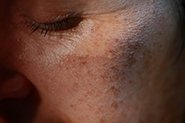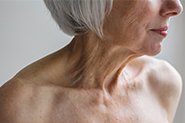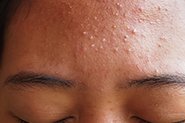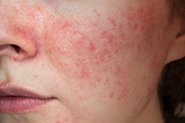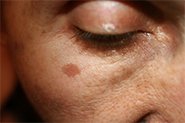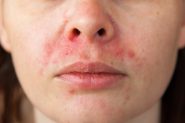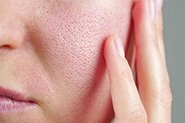
Stress has always been a significant part of our lives, and has been amplified significantly in the last two years due to COVID. Data from the Melbourne Institute shows that, in 2021, 40% of Australians reported feeling stressed or anxious some/most of the time, and 20% reporting feeling stressed or anxious most/all of the time.
While that’s not a surprise to most, what many of us don’t consider is how that stress affects our skin in the long term. We’re often aware of the short-term effects of stress on our skin – sweating & flushing before an interview, or a flare of acne during busy periods at work – but research over the past 20 years has demonstrated that long-term stress takes a significant toll on our skin health.
How does chronic stress affect our skin?
Our understanding of how chronic stress affects the skin over time has developed into what is often called the ‘Brain-Skin Axis’. The Axis consists of two main signalling pathways in the body:
The hypothalamic-pituitary-adrenal (HPA) pathway
The dermal neurogenic pathway
The HPA axis is our body-wide response to stress, in which the brain produces multiple hormones that activate the adrenal glands, resulting in increased production of cortisol – commonly called the stress hormone. This increased cortisol makes its way into our organs, including the skin. Additionally, studies demonstrate that direct nerve signals from the brain and local stress responses trigger skin cells to release of a number of related hormones in the skin, including catecholamines, histamine, neurotrophins and interleukins.
In the short term, these hormones can help improve our immune response and protect the skin. In the long term, however, high levels of these hormones have a number of detrimental effects including:
Increased inflammation and oxidants – worsening conditions such as eczema, acne and psoriasis
Increased sebum production – driving acne and seborrheic dermatitis
Impaired barrier function – which may cause irritation or perioral dermatitis
Slow wound healing – meaning that your skin experiences more damage from the environment (UV exposure etc)
Altered hair growth (including greying)
Accelerated ageing – through altered production of collagen, elastin and hyaluronic acid, increase in pigment formation, decrease in epidermal cell production and shortening of telomeres (parts of DNA that get shorter the older we get).
Ultimately, in response to chronic stress our skin appears more aged, is more reactive and has a decreased ability to protect our body from external threats – not the ideal for anybody.
What can you do to help minimise the effect of stress on your skin?
The good news is the the answer lies in the basics: exercising regularly, consuming a healthy, balanced diet, getting enough good-quality sleep, and putting aside time to practice what makes your mind happy & healthy (whether that is meditation, mindfulness or simply reading a good book). In reality, however, just because they’re the basics doesn’t necessarily make them easy to achieve!
Start out by making small changes – you don’t need to do everything at once. When you’ve created a pattern of habit for that change, move on to making your next small change. Before you know it, you’ll be paying attention to the basics without any effort at all – that’s the power of habits!
And of course, you can help your skin along by mitigating the effects of stress & the environment by maintaining your evidence-based Qr8 MediSkin regimen, which is full of anti-oxidants, barrier-supporting agents and medical treatment ingredients designed to keep your individual skin healthy and functioning at it’s optimum level! Our Qr8 Nutrition Accredited Practicing Dietitians can also provide simple, gimmick-free, evidence-based nutrition advice to help you make sustainable change to your skin, health and mood (and stay by your side with personalised support throughout!).
At Qr8 MediSkin, your skin health is our priority.
CLICK HERE to see how our team supports you on your skin journey (and why this support is so important to get results!)
REFERENCES
Arck PC, Slominski A, et al. Neuroimmunology of stress: skin takes center stage. J Invest Dermatol. 2006. PMID: 16845409.
Orion E, Wolf R. Psychological stress and epidermal barrier function. Clin Dermatol. 2012. PMID: 22507042.
Chen Y, Lyga J. Brain-skin connection: stress, inflammation and skin aging. Inflamm Allergy Drug Targets. 2014. PMID: 24853682.
WOULD YOU LIKE TO CHAT TO ONE OF OUR FRIENDLY DOCTORS ABOUT YOUR PERIORIFICIAL DERMATITIS?
CLICK HERE TO BOOK A CONSULT WITH OUR EXPERIENCED MEDICAL TEAM.


